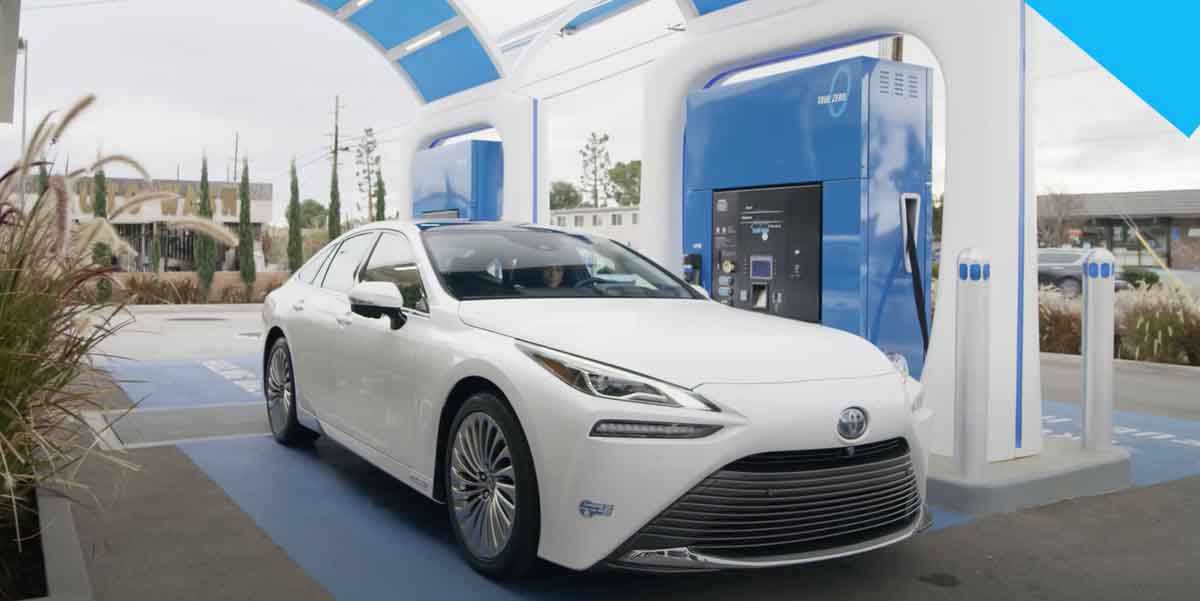A new car has recently arrived at the Kathmandu University (KU) campus in Dhulikhel from South Korea, eagerly awaited for its test runs. The unique feature of this car is that it runs on hydrogen rather than petrol, diesel, or batteries. The Green Hydrogen Lab within the university conducted tests just a few days ago after the car arrived in Nepal.
The car has been running for about three hours, but due to fuel issues, it is currently not operational. The hydrogen fuel station constructed by KU in the final phase is expected to start operating from the month of Mangshir. After that, Dr. Viraj Singh Thapa, Associate Professor and Head of the Lab, says that for the first time in Nepal, vehicles based on hydrogen fuel cells will be operational.
Hydrogen vehicles are not registered in Nepal due to a lack of laws. Dr. Thapa's statement emphasizes that Nepal's laws do not recognize vehicles based on hydrogen fuel, hindering their registration.
"The current laws in Nepal only allow the registration of vehicles running on petrol, diesel, and batteries. Therefore, until legal provisions are made, this vehicle can only be used for research purposes at the university," says Thapa.
The main goal of introducing hydrogen vehicles is to conduct research on the fuel station prepared by the university. The research team at the university believes in supporting further studies on the use and significance of hydrogen through the demonstration of hydrogen vehicles.
Until now, KU Lab has demonstrated the production of hydrogen fuel within Nepal and even cooked food using hydrogen fuel, surpassing the capabilities of petrol vehicles. The lab, consisting of 22 researchers, primarily focuses on economic and technical evaluation of hydrogen production and related processes.
How is Hydrogen Produced?
Hydrogen is produced through a chemical reaction by splitting water into hydrogen and oxygen. One kilogram of hydrogen is produced from nine liters of water through a chemical process. This process consumes 50 to 60 units of electricity. According to Associate Professor Thapa, the cost of hydrogen production depends significantly on the electricity cost. He estimates that it costs between 150 to 300 rupees to produce one kilogram of hydrogen, considering the electricity cost.
Nepal has an excess of 1000 megawatts of electricity during peak times. Thapa believes that utilizing this surplus electricity would make hydrogen production quite affordable compared to the international market, estimating it to be around 1.5 to 1.75 euros per kilogram.
Hydrogen-powered vehicles offer a longer range, exceeding 200 kilometers per kilogram, as per the experiences of international users. The university's hydrogen-powered vehicle, with a capacity of 6.5 kilograms of hydrogen fuel, can travel approximately 1200 kilometers. Currently, the cost of hydrogen fuel is much lower compared to petroleum, even when factoring in the expenses of battery replacement for electric vehicles.
In addition to vehicles, the university is also studying the production of methane and ammonia gas using hydrogen as a base. Methane, produced through chemical reactions with hydrogen and carbon dioxide, is considered a natural gas that can be used in various industrial applications, including replacing LPG for cooking.
Ammonia, produced through chemical reactions with nitrogen, is a gas commonly found in the atmosphere. This ammonia can be used for water purification and in industries such as the Chisapani Center.
The Paris Agreement aims to achieve net-zero carbon emissions by 2050. Using hydrogen energy has been recognized as crucial to fulfilling this commitment. Many countries, including the United States, China, Japan, and European nations, have enacted various laws and regulations to promote renewable energy, including hydrogen.
After three years of research, Dr. Thapa is satisfied with the progress made in conveying the importance of hydrogen. However, he expresses concern about the commercialization aspect and emphasizes the need to seize opportunities now that research has been successful.
"The research that started three years ago has successfully conveyed the importance of hydrogen up to the lower level. Now, it's time to work from a commercial perspective," says Thapa.
About KU Green Hydrogen Lab
The Green Hydrogen Lab (GHLab), established in August 2020 under Dr. Biraj Singh Thapa's leadership, focuses on various research activities related to hydrogen production, end-use, and feasibility scenarios in Nepal.
Over the past year, GHLab has fostered collaboration between academia, industries, and the government. They conducted webinars, lectures, and discussions on green hydrogen possibilities. Partnerships were formed with Nepal Oil Corporation, Alternative Energy Promotion Centre, and the Norwegian Government. Kathmandu University and Nepal Oil Corporation signed an MOU in January 2021, initiating a project with a research grant of NRs. 50 million.
An agreement was signed in February 2021, and an MoU with AEPC in April 2021 aimed at setting up a demonstrative facility for green hydrogen technologies. Kathmandu University proposed the 'Nepal Hydrogen Initiative 2021-2030' on World Environment Day. The GHLab's one-year journey has laid a strong foundation for the development of the Green Hydrogen ecosystem in Nepal.
Watch the Podcasts about the NEWS
More from this blog,







0 Comments
Post a Comment
All the information shared here are the outcome of author's research and experience, they might not be applicable in your particular case. Therefore before applying such crucial matters in your personal life don't forget to understand the acutal sutiation. In the other hand we try to provide genuine, validated and tangible information to you.
Please be polite and don't forget to follow the community guidelines while commenting in the post. We don't allow the spam comments in our blog.